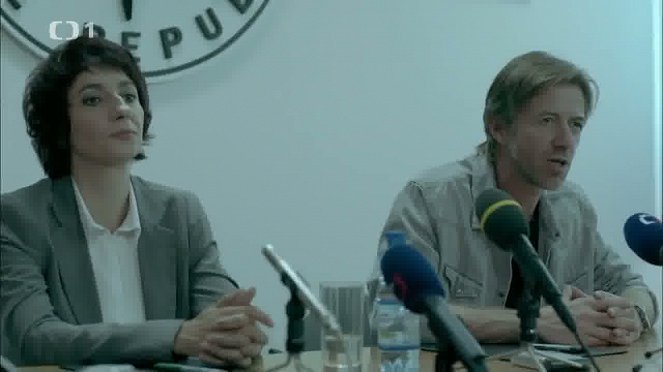Réalisation:
Robert SedláčekScénario:
Zdeněk ZapletalPhotographie:
Petr CikhartMusique:
Ivo ViktorinActeurs·trices:
Jiří Langmajer, Martin Stránský, Simona Babčáková, Norbert Lichý, Sylvie Krupanská, Eva Kodešová, Hana Vagnerová, Veronika Lazorčáková, Tereza Vilišová, Jaroslav Plesl, Jiří Vyorálek (plus)Critiques (1)
This is called "losing out". Its name unmistakably puts it in the wave of Nordic crime series, as well as the concept of the detective as a lonely desperate man who finds himself on the edge of existential ruin. But - although I like Sedláček's lethargic manner of conducting dialogues, this time it sometimes completely misses the effect and harms the whole. Due to the eternal "half-assed dialogues", the detective has a pace like a horse's dose of sedatives. The music is an absolute mess, which is entirely out of it. Why does the same music sound under three completely different scenes? Why is the "killer watching the detective" motif accompanied by a piano etude as if from the playlist of a Czech hypermarket? It completely kills otherwise praiseworthy attempts to work with the framing of the shot and the environment (for example, the shot from the top of the detective's shoulder in the middle of luxury cars is funny and there are more such flashes in the film). I enjoyed a few moments in which Sedláček incorporates insignificant detail into the escalation of a scene (the scene with a rotating wooden ball, etc.). The cast is good, the actors act quite civilly, but the dialogues are traditionally weak - the best moments between the characters tend to be wordless and the strongest person in the whole story is the alcohol-devastated enfant terrible of the choir, Martin Stránský. Ženy, které nenávidí muže lacks the legendary measure and feeling - what sounds natural at the peak of a Nordic crime series and has a dark emotional vibe is therefore too flat and too exaggerated. There is a lack of tension and a twist, but also "pathological" magic. On the positive side, with the exception of the natural in the role of league hockey player, it does without unnecessary awkwardness and visually it looks quite solid. But these are just ingredients - the whole is very far from functioning. In order to function, it would need something like a script and not this mountain of diligently copied and poorly slapped-together motifs. Has anyone explained to the screenwriter that this type of detective story should not lack something like a "false suspect", so that the search has at least the minimal tension?
()
